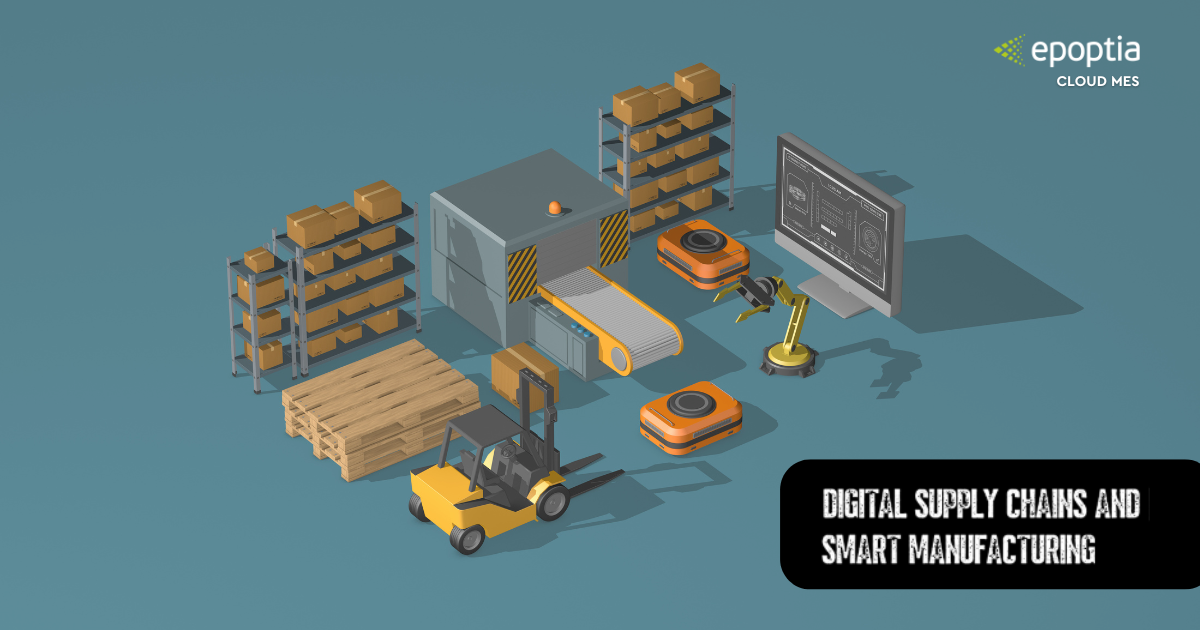Discover the power of digital supply chains and smart manufacturing. Learn how these technologies can improve efficiency, enhance visibility, and solve common manufacturing challenges.
To begin with, the manufacturing industry is undergoing a seismic shift as it embraces the digital era. Digital supply chains and smart manufacturing are no longer just buzzwords; they represent a necessary transformation that enables manufacturers to remain competitive, agile, and resilient in a rapidly evolving market. By leveraging technologies like IoT (Internet of Things), AI (Artificial Intelligence), advanced analytics, and cloud computing, manufacturers are not only enhancing operational efficiency but also improving supply chain visibility and customer satisfaction.
In this article, we will explore what digital supply chains and smart manufacturing entail, their benefits, and the common challenges they solve. Additionally, we’ll highlight how manufacturers can take actionable steps to adopt these transformative practices.
What is a Digital Supply Chain?
A digital supply chain utilizes technology to integrate and optimize every aspect of supply chain management, from procurement and production to distribution and customer service. Unlike traditional supply chains that rely heavily on manual processes, digital supply chains are dynamic, interconnected systems powered by data.
Key Features of Digital Supply Chains:
1. Real-time data sharing and analytics
2. Predictive and prescriptive insights using AI and machine learning
3. Integration of IoT for tracking and monitoring assets
4. Automation of repetitive tasks, such as inventory management
5. Enhanced collaboration across suppliers, manufacturers, and customers
All in all, by transitioning to a digital supply chain, manufacturers can achieve greater transparency, agility, and efficiency in their operations.
What is Smart Manufacturing?
Moreover, smart manufacturing refers to the use of interconnected technologies and data-driven systems to enhance production processes. It integrates advanced automation, IoT-enabled devices, and machine learning to create flexible and efficient production environments.
Core Technologies Behind Smart Manufacturing:
IoT Sensors: Collect data from machines, products, and processes in real time.
AI and Machine Learning: Analyze data to identify patterns, optimize workflows, and make predictive decisions.
Cloud Computing: Provide scalable storage and computing power for data processing.
Robotics and Automation: Streamline manual tasks and reduce human error.
Digital Twins: Create virtual replicas of physical systems for simulations and testing.
To sum up, smart manufacturing allows job shops and large-scale manufacturers alike to operate more efficiently, minimize waste, and respond quickly to changes in demand.
Benefits of Digital Supply Chains and Smart Manufacturing
Moving on, both digital supply chains and smart manufacturing unlock a range of benefits for manufacturers. These include:
1. Improved Visibility and Traceability
One of the key challenges in traditional supply chains is the lack of visibility into inventory, shipments, and production status. That is, digital supply chains offer real-time tracking, enabling manufacturers to monitor every stage of the process. For instance, IoT devices can track raw materials from the supplier to the production floor, ensuring timely delivery and quality control.
2. Enhanced Agility
Furthermore, market demands can change in the blink of an eye. Digital supply chains provide the flexibility to adapt quickly to fluctuations in demand or disruptions, such as supply shortages or natural disasters. Predictive analytics can forecast potential bottlenecks and suggest alternative solutions, keeping operations running smoothly.
3. Optimized Resource Allocation
Moreover, smart manufacturing systems use AI-driven insights to optimize the allocation of resources, such as materials, labor, and energy. This reduces waste and ensures that production is as efficient as possible.
4. Cost Savings
By automating manual processes and identifying inefficiencies, manufacturers can significantly reduce operating costs. For example, predictive maintenance powered by IoT sensors can prevent costly equipment breakdowns by detecting issues before they escalate.
5. Customer-Centric Operations
Also, digital supply chains enable manufacturers to respond more effectively to customer needs. For example, advanced order tracking and personalized product recommendations create a better customer experience.
Challenges Solved by Digital Supply Chains and Smart Manufacturing
Taking all into consideration, the adoption of these technologies is particularly effective in addressing longstanding challenges in the manufacturing industry:
1. Supply Chain Disruptions
Global events such as pandemics and geopolitical tensions have underscored the fragility of traditional supply chains. Digital supply chains mitigate these risks by enabling real-time monitoring, alternative supplier identification, and rapid re-routing of shipments.
2. Inefficiencies in Production
Manual processes often lead to delays, errors, and resource wastage. Smart manufacturing replaces these with automated, data-driven workflows that streamline production and enhance accuracy.
3. Lack of Data-Driven Decision Making
Traditional supply chains and factories rely on historical data and gut instincts. Digital systems, on the other hand, provide real-time insights that empower manufacturers to make proactive, informed decisions.
4. Workforce Shortages
Automation and smart technologies fill the gaps left by labor shortages, allowing manufacturers to maintain productivity without relying heavily on manual labor.
5. Environmental Concerns
Sustainability is a growing priority for manufacturers. By reducing waste and energy consumption, smart manufacturing and digital supply chains help companies meet their environmental goals.
Steps to Adopt Digital Supply Chains and Smart Manufacturing
While the transition to digital supply chains and smart manufacturing can seem daunting, it’s a journey worth undertaking. Here’s how manufacturers can get started:
1. Assess Current Capabilities
First, begin by evaluating your existing supply chain and manufacturing processes to identify inefficiencies and areas for improvement.
2. Invest in the Right Technologies
Then, look for scalable solutions that align with your business needs. This could include IoT sensors, cloud-based platforms, or AI-driven analytics tools.
3. Build a Skilled Workforce
Moving on, train your employees to work with new technologies and integrate them seamlessly into your workflows. Alternatively, hire talent with expertise in digital systems.
4. Collaborate with Partners
Also, work closely with suppliers, distributors, and technology providers to ensure a smooth transition.
5. Start Small
Last but not least, implement digital solutions in specific areas of your operations before scaling them across the entire supply chain or factory.
Conclusion
To sum up, as the manufacturing industry continues to evolve, the adoption of digital supply chains and smart manufacturing will become increasingly essential. By embracing these technologies, manufacturers can achieve unparalleled efficiency, agility, and resilience in their operations.
Epoptia MES (Manufacturing Execution System) is designed to empower manufacturers with the tools they need to succeed in the digital age. From real-time production tracking to advanced analytics and workflow automation, it simplifies complex manufacturing processes and drives operational excellence.
If you’re ready to transform your business, contact us today for a personalized presentation and discover how Epoptia can revolutionize your manufacturing operations.
For more information, check https://bit.ly/3vYnb4f.




















